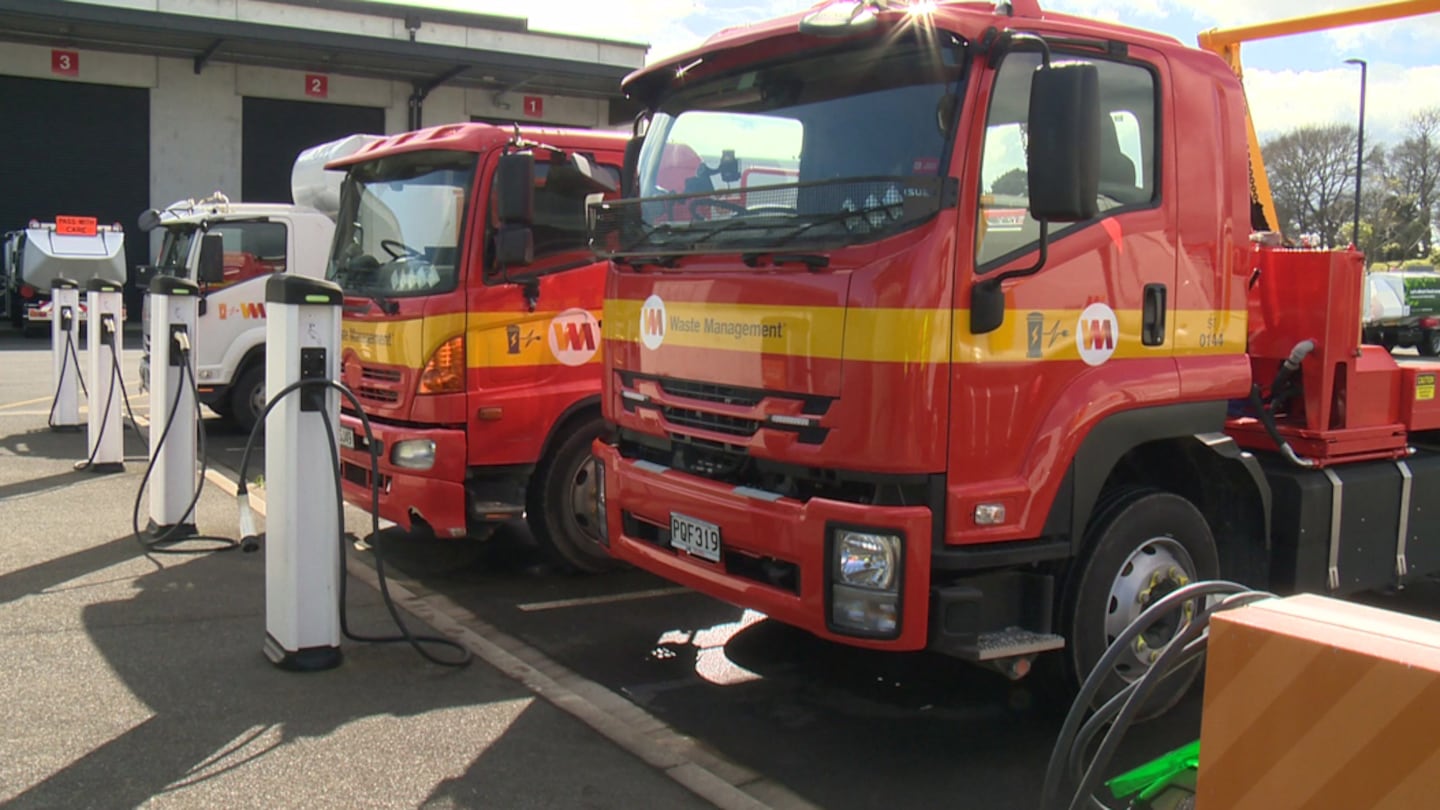Waste Management New Zealand is using energy generated from waste to recharge its rubbish collection trucks. The company, which is Aotearoa’s largest producer of electricity from waste, says it produced enough electricity last year to power 25,000 homes, as well as its fleet of electric trucks.
“Ko te mea nui kei tēnei kaupapa ko te taiao,” Waste Management New Zealand Tumu Tikanga Te Teira Rawiri. says (The important objective of this project is the environment)
The idea arose after a survey in 2015 that showed the largest source of the company’s emissions was its diesel trucks. The company launched a formalised sustainability strategy in 2018 and made a move to electrify its rubbish collection trucks. Its Redvale landfill at Dairy Flat, which it calls an energy park, generates electricity from rubbish.
“A landfill is like a big claypot,” says Waste Management chief growth and sustainability officer Ingrid Cronin Knight. “You put in food, clothing, cardboard, maybe some curtains. When they are in the landfill they start to degrade, and we capture the gas on top of that and we use that gas to power our generators.”
About 95% of the methane produced at the landfill is captured, converted to electricity and fed back into the national grid. Using this electricity to power the trucks was “just a logical step choice around how we could improve our overall emissions,” Cronin Knight says.
The electricity powers the truck to move along the road, and the power is returned into the truck, Rawiri says.
‘Circular economy’
“It’s just that kind of circular economy, which is what we are all about,” Cronin Knight says.
The trucks, which originally ran on diesel, are fitted with electric engines. While this increases the upfront costs by 70-80%, “the running costs are lower,” she says.
According to Waste Management, the cost to fuel electric trucks is 80-85% cheaper than diesel trucks. The frequent braking that collection trucks indulge in works to benefit because regenerative technology converts the slowing down into electrical energy, and brakes themselves have to be replaced less frequently. The trucks also collect their very source of energy.
“One of these trucks will take around 16,000 tonnes of waste. That will produce enough electricity to power 235 houses for a day,” Cronin Knight says.
With 32 electric trucks and 20 more to be converted this year, Waste Management hopes to convert its entire fleet of 800 trucks to run on electricity in the years to come.



